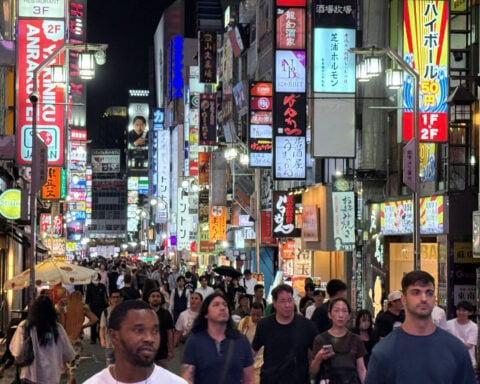YAOUNDE (Reuters) - The U.N. High Commissioner for Human Rights requested on Wednesday better access to Cameroon's restive separatist regions and called for revisions to an anti-terror law that rights groups say has been used to silent dissent.
Factions of secessionist militias have been battling government troops in Cameroon's two English-speaking regions since 2017, leading to thousands of deaths and displacing nearly 800,000 people.
"I have called on the government to facilitate humanitarian access to areas affected by conflict," Volker Turk said after a two-day visit to the Central African country.
"I have also urged the government to revise the 2014 anti-terrorism law in this regard," he said.
Amnesty International has described that law, which mandates the death penalty, as repressive and says it curtails rights protected in Cameroon's constitution.
In a 2022 report, Amnesty found that the majority of people jailed from the Anglophone regions had been sentenced under the law.
In 2017 a journalist was sentenced to 10 years in prison on terrorism charges under the legislation.
(Reporting by Amindeh Blaise Atabong; Writing by Portia Crowe; Editing by Toby Chopra)

 Trump has begun another trade war. Here's a timeline of how we got here
Trump has begun another trade war. Here's a timeline of how we got here
 Canada's leader laments lost friendship with US in town that sheltered stranded Americans after 9/11
Canada's leader laments lost friendship with US in town that sheltered stranded Americans after 9/11
 Chinese EV giant BYD's fourth-quarter profit leaps 73%
Chinese EV giant BYD's fourth-quarter profit leaps 73%
 You're an American in another land? Prepare to talk about the why and how of Trump 2.0
You're an American in another land? Prepare to talk about the why and how of Trump 2.0
 Chalk talk: Star power, top teams and No. 5 seeds headline the women's March Madness Sweet 16
Chalk talk: Star power, top teams and No. 5 seeds headline the women's March Madness Sweet 16
 Purdue returns to Sweet 16 with 76-62 win over McNeese in March Madness
Purdue returns to Sweet 16 with 76-62 win over McNeese in March Madness







